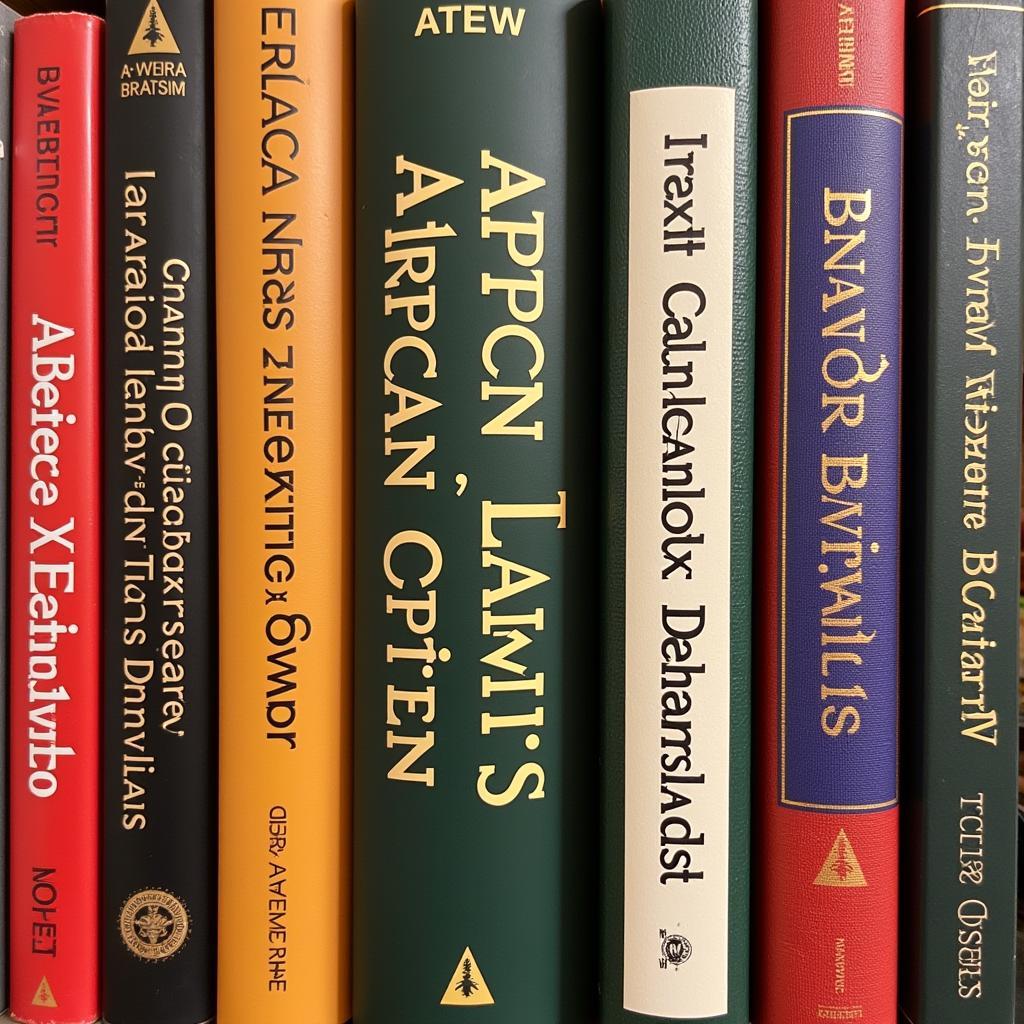A Deep Dive into African British Journals: Unveiling Untold Stories and Perspectives
African British Journals offer a unique lens through which to explore the rich tapestry of experiences, perspectives, and narratives of individuals of African descent in Britain. These publications serve as invaluable repositories of history, culture, and social commentary, documenting the evolving realities of African British communities and their contributions to British society.
 A collection of various African British journals
A collection of various African British journals
The Significance of African British Journals
African British journals have played a pivotal role in shaping and reflecting the evolving identity of African British communities. They have provided a platform for writers, academics, artists, and activists to engage in critical discourse, challenge dominant narratives, and amplify the voices often marginalized in mainstream media. Through their pages, these journals have documented the struggles against racism and discrimination, celebrated cultural heritage and achievements, and explored themes of identity, belonging, and representation.
For instance, pioneering journals like “The West African Review” and “Présence Africaine” emerged in the mid-20th century, offering crucial spaces for intellectual exchange and Pan-African solidarity during a time of immense social and political change. These publications served as vital conduits for connecting African intellectuals and activists across the diaspora, fostering a sense of shared struggle and vision for liberation.
 An African British journal editor reviewing submissions
An African British journal editor reviewing submissions
Exploring the Diversity of Content
African British journals encompass a wide range of genres, themes, and perspectives, reflecting the diversity and dynamism of African British communities themselves. From academic journals such as “African Affairs” and “The Journal of African Cultural Studies” to literary magazines like “Wasafiri” and “Granta”, these publications showcase the multifaceted nature of African British writing and scholarship.
Many journals focus on specific thematic areas, such as history, politics, literature, art, or gender studies. Others adopt an interdisciplinary approach, exploring the intersections of race, class, gender, and sexuality in the context of African British experiences. The diversity of content ensures that there is a journal for every interest and perspective within the African British community and beyond.
The Impact of Digitalization
The advent of the digital age has significantly transformed the landscape of African British journals. Many publications have transitioned to online platforms, expanding their reach and accessibility to a global audience. Online journals offer several advantages, including reduced production costs, faster publication cycles, and the ability to incorporate multimedia elements such as audio, video, and interactive features.
 A person accessing an African British journal on a digital tablet
A person accessing an African British journal on a digital tablet
Moreover, the digital realm has facilitated the emergence of new, independent journals and blogs dedicated to showcasing African British voices. These platforms provide emerging writers and artists with valuable opportunities for exposure and engagement, further enriching the tapestry of African British literature and cultural production.
Conclusion
African British journals have played an indispensable role in documenting, preserving, and celebrating the multifaceted experiences and contributions of African British communities. From their early beginnings as platforms for Pan-African solidarity to their current digital iterations, these publications continue to serve as vital spaces for critical discourse, cultural expression, and social commentary. By engaging with African British journals, we gain invaluable insights into the evolving realities of African British life, fostering greater understanding and appreciation for the rich tapestry of British society.


